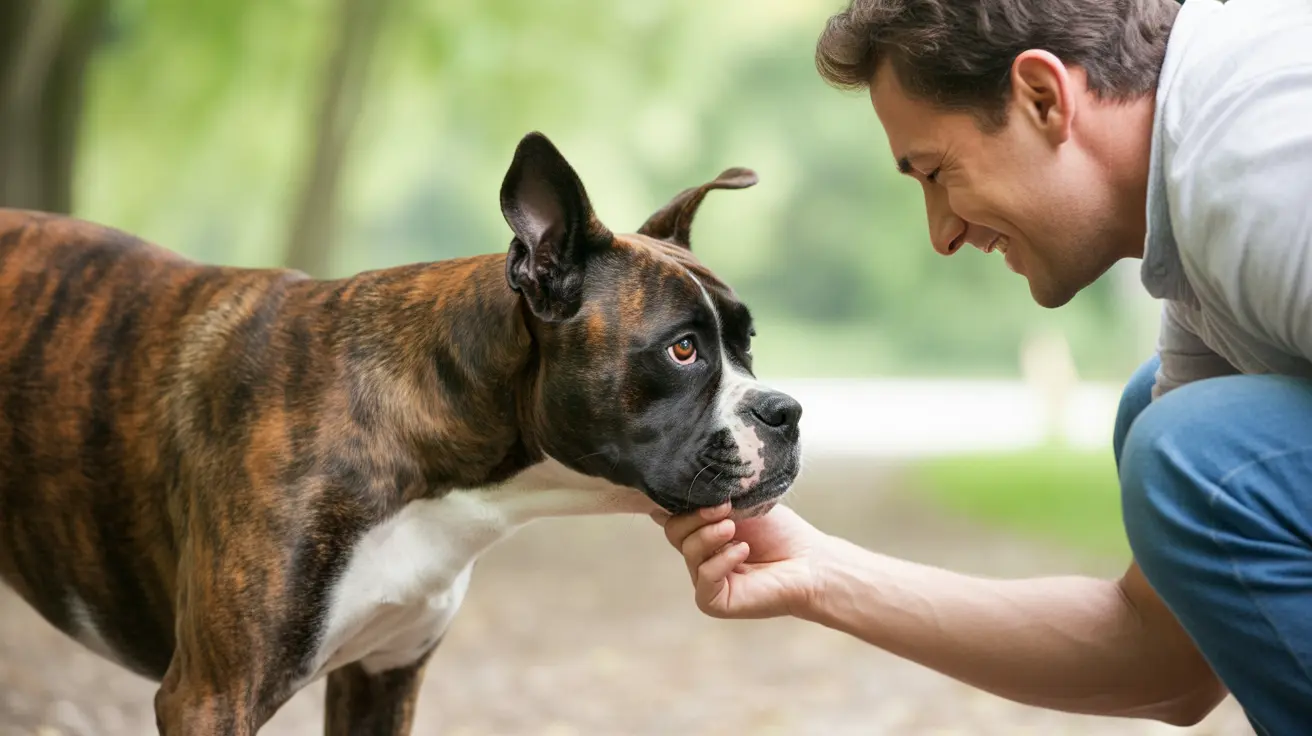Dogs possess an extraordinary ability to detect cancer through their remarkable sense of smell, which is estimated to be up to 100,000 times more sensitive than humans'. This incredible capability allows them to identify subtle changes in body chemistry that occur with various types of cancer, often before visible symptoms appear.
Recent scientific research has documented numerous cases where dogs have successfully detected various types of cancer in both humans and other dogs. Their ability to identify cancer-specific volatile organic compounds (VOCs) has led to both groundbreaking research and life-saving early detections.
Common Behavioral Signs When Dogs Detect Cancer
When dogs encounter cancer-related scents, they typically display several distinctive behaviors:
Persistent Focus and Sniffing
Dogs often show intense interest in specific areas of their owner's body, repeatedly sniffing or investigating particular spots. This behavior might continue for days or weeks, suggesting they've detected something unusual about that area's scent profile.
Physical Indicators and Actions
Cancer-detecting dogs frequently exhibit these specific behaviors:
- Persistent licking or nipping at a particular spot
- Pawing or nudging at specific body areas
- Laying their head on the area of concern
- Following the person around more closely than usual
- Showing signs of anxiety or distress when near the affected area
Scientific Evidence of Canine Cancer Detection
Multiple research studies have validated dogs' cancer-detection abilities:
Laboratory Studies
In controlled environments, trained dogs have demonstrated remarkable accuracy in detecting various cancers through biological samples. Studies have shown success rates as high as 95% in some cases, particularly when detecting lung and breast cancers through breath samples.
Real-world Applications
Medical detection dogs are now being employed in clinical settings to assist with cancer screening. These specially trained dogs work with biological samples to help identify potential cases of cancer, particularly in situations where traditional screening methods might be less effective or more invasive.
Training and Certification Process
Dogs undergo extensive training to become certified cancer detectors. This process typically includes:
- Exposure to various cancer-positive samples
- Learning specific alert behaviors
- Practicing discrimination between cancer and non-cancer samples
- Regular testing and certification maintenance
When to Take Notice of Your Dog's Behavior
While not all unusual dog behavior indicates a health concern, certain persistent actions warrant attention:
- Consistent focus on one body area for extended periods
- Changes in the dog's normal behavior patterns when interacting with you
- Obvious signs of distress when near specific parts of your body
- Repeated attempts to draw your attention to particular areas
Frequently Asked Questions
How do dogs behave when they detect cancer in their owners?
Dogs typically show persistent interest in specific areas, including repeated sniffing, licking, or pawing at the spot. They may also display unusual protective behavior or appear anxious when near the affected area.
What specific signs indicate a dog smells cancer on a person?
Key signs include focused sniffing of particular body areas, persistent pawing or nudging, unusual protective behavior, and attempts to draw attention to specific spots through licking or gentle nipping.
Can dogs really smell cancer before symptoms appear in humans?
Yes, studies have shown that dogs can detect cancer before clinical symptoms are evident, thanks to their ability to smell cancer-specific volatile organic compounds (VOCs) released by cancer cells.
How accurate are trained dogs at detecting different types of cancer?
Trained dogs have shown accuracy rates between 88-97% in clinical studies, depending on the type of cancer and the sample medium being tested (breath, urine, blood, etc.).
What should I do if my dog persistently sniffs, licks, or paws at a spot on my body?
While not every instance of such behavior indicates cancer, if your dog persistently focuses on one area for an extended period, it's advisable to consult with a healthcare professional for evaluation.
Understanding how dogs act when they smell cancer can provide valuable insights into their potential role in early cancer detection. While dogs should never replace professional medical diagnosis, their remarkable abilities continue to contribute to both research and practical applications in cancer detection.






